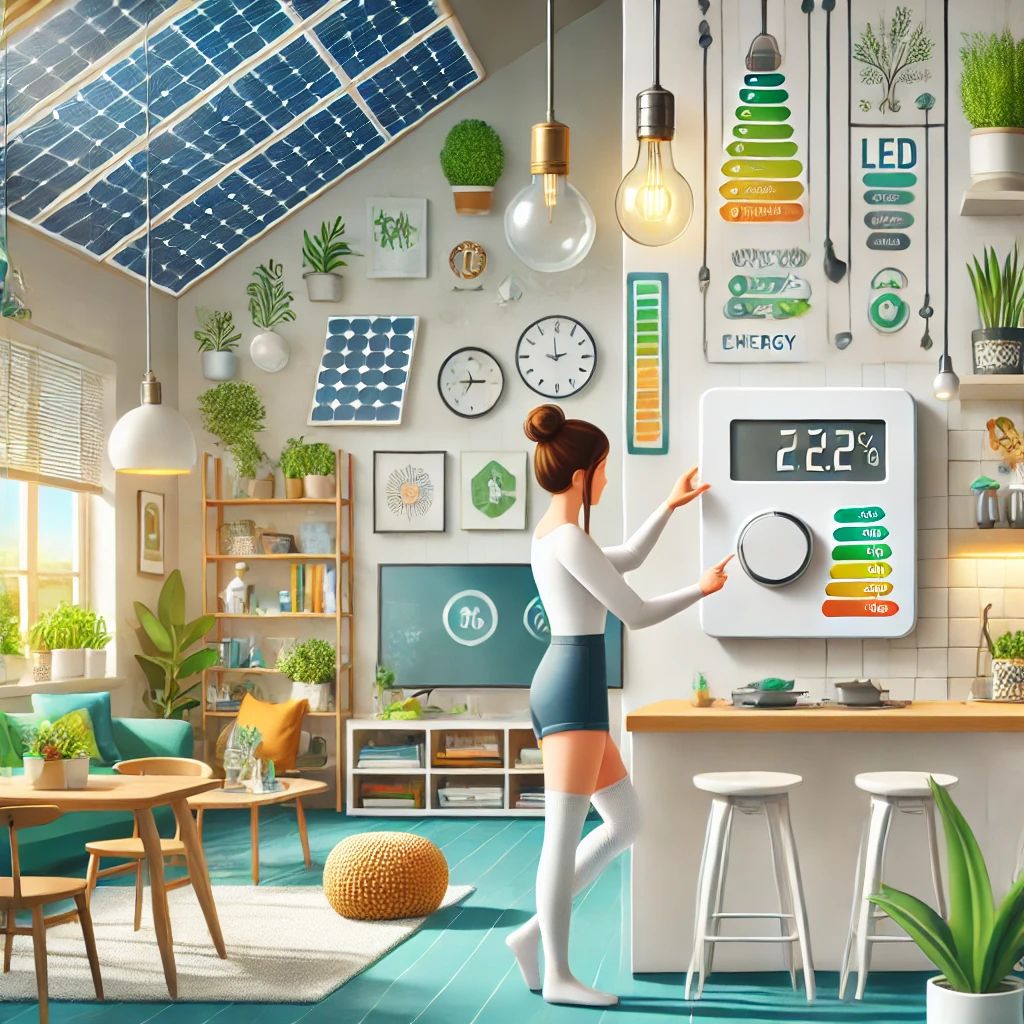
In today's world, reducing energy consumption is not only an excellent way to lower your utility bills but also a crucial step in protecting our environment. By making small, practical changes in our daily routines, we can significantly reduce our energy use and contribute to a more sustainable future. Here are some comprehensive and effective tips to help you reduce your energy consumption at home.
Optimize Your Heating and Cooling
Heating and cooling account for a significant portion of household energy use. By optimizing these systems, you can save energy and money.
Adjust Your Thermostat: During the winter, set your thermostat to 68 degrees Fahrenheit when you're at home and awake. Lower it when you're asleep or away. In the summer, aim for 78 degrees when you're at home and increase it when you're out.Use Programmable Thermostats: Invest in a programmable thermostat to automatically adjust the temperature based on your schedule. This prevents unnecessary heating and cooling when you're not home.Seal Leaks: Check for and seal any leaks around windows, doors, and ducts to prevent heat loss in the winter and keep cool air inside during the summer.Insulate Your Home: Proper insulation in your walls, attic, and floors can significantly reduce the amount of energy needed to heat and cool your home.Improve Your Lighting
Lighting is another area where you can make significant energy savings with a few simple changes.
Switch to LED Bulbs: LED bulbs use up to 75% less energy than traditional incandescent bulbs and last up to 25 times longer. Replace your old bulbs with LEDs to save energy and reduce replacement costs.Utilize Natural Light: Take advantage of natural light during the day by opening curtains and blinds. This reduces the need for artificial lighting.Install Dimmer Switches: Dimmer switches allow you to adjust the brightness of your lights, using less energy when full brightness isn't necessary.Enhance Your Appliance Efficiency
Household appliances can be major energy consumers. Making them more efficient can lead to substantial savings.
Upgrade to Energy-Efficient Appliances: When it's time to replace old appliances, choose ENERGY STAR-rated models. These appliances meet strict energy efficiency guidelines set by the EPA and can significantly reduce energy use.Unplug When Not in Use: Many appliances continue to use energy even when turned off. Unplug devices like chargers, microwaves, and coffee makers when they're not in use, or use power strips to easily switch off multiple devices at once.Use Appliances Wisely: Run dishwashers and washing machines only with full loads, and use cold water for washing clothes whenever possible. This reduces the energy needed to heat the water.Adopt Energy-Saving Habits
Changing your everyday habits can also lead to significant energy savings.
Shorten Showers: Reducing your shower time by just a few minutes can save gallons of hot water and reduce the energy needed to heat it.Air Dry Clothes: Whenever possible, hang your clothes to dry instead of using a dryer. This not only saves energy but also extends the life of your clothes.Cook Efficiently: Use lids on pots and pans to reduce cooking time and energy use. Opt for microwaves or toaster ovens for smaller meals instead of heating up the large oven.Maximize Home Energy Management
Implementing smart home technology and regular maintenance can help you better manage your home's energy use.
Install Smart Meters: Smart meters provide real-time data on your energy consumption, helping you identify and reduce energy waste.Schedule Regular Maintenance: Keep your heating and cooling systems running efficiently with regular maintenance checks. Clean or replace filters, and ensure systems are in good working order.Conduct an Energy Audit: Consider hiring a professional to perform an energy audit of your home. They can identify areas of inefficiency and recommend specific improvements to reduce your energy consumption.Invest in Renewable Energy
If possible, consider investing in renewable energy sources to power your home.
Solar Panels: Installing solar panels can significantly reduce your reliance on traditional energy sources and lower your electricity bills. Many areas offer incentives and rebates to offset the initial installation costs.Wind Turbines: For homes in suitable locations, small wind turbines can provide an alternative source of renewable energy.Educate and Involve Your Family
Reducing energy consumption is more effective when the entire household is involved.
Educate Family Members: Teach your family about the importance of saving energy and the benefits it brings. Encourage them to adopt energy-saving habits.Set Energy-Saving Challenges: Make saving energy fun by setting challenges or goals. For example, challenge each family member to find new ways to reduce energy use each week.Conclusion
Reducing energy consumption at home is not only beneficial for your wallet but also for the environment. By optimizing your heating and cooling, improving lighting efficiency, enhancing appliance usage, adopting energy-saving habits, managing home energy effectively, investing in renewable energy, and involving your family, you can make a significant impact. Embrace these tips to create a more energy-efficient home and contribute to a sustainable future. Every small change adds up to make a big difference, and together, we can work towards a greener, more efficient world.
The article was prepared by Dana Morrison.



